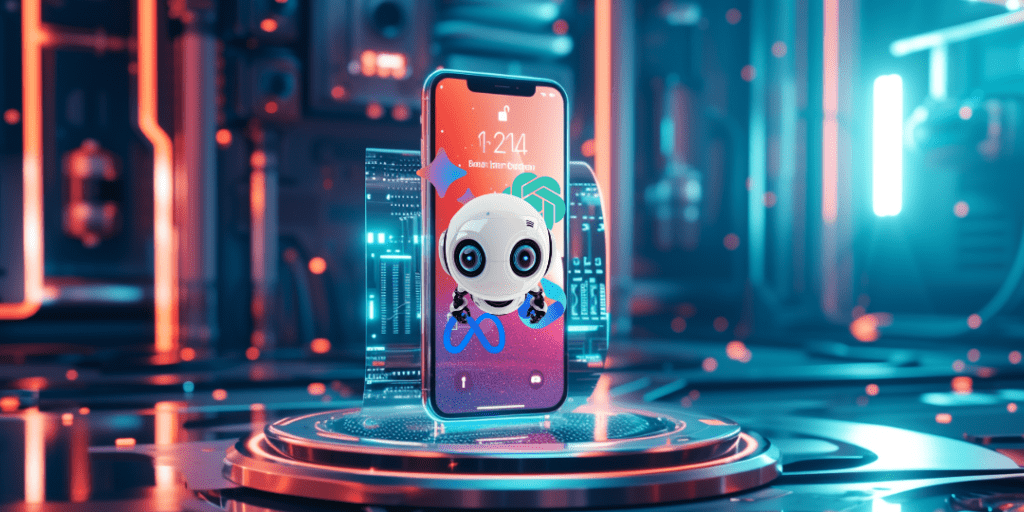GenAI Smartphone Market is poised to redefine the mobile landscape, with a new report predicting an explosive growth in shipments of GenAI-equipped devices. By 2024, 11% of smartphones are expected to feature GenAI, and this number is projected to soar to 43% by 2027, culminating in more than 550 million units.
This surge reflects a burgeoning trend where advanced AI capabilities are no longer just a luxury but a fundamental component of the consumer technology ecosystem.
As industry leaders like Samsung and Apple gear up to pioneer this transformation, the adoption of GenAI is set to revolutionize user experiences, enhance personalization, and significantly alter the competitive dynamics within the global smartphone market.
This introduction sets the stage to delve deeper into the details of the report, examining the technological innovations driving this growth and the broader implications for both consumers and manufacturers.
Market Projections
According to the latest insights from Counterpoint Research, the trajectory for GenAI-equipped smartphones suggests a significant transformation in the market over the next few years.
By 2024, it is anticipated that 11% of all smartphones will be equipped with generative AI capabilities, a figure set to quadruple by 2027, reaching 43%. This represents a staggering total of over 550 million units equipped with advanced AI technologies.
This sharp increase is indicative of a broader trend where advanced technologies become mainstream within the smartphone industry.
The report emphasizes that this growth is not just about higher sales volumes; it also reflects a shift in consumer expectations and the technological baseline of consumer electronics.
The ability of GenAI to offer enhanced functionalities, such as improved voice and image processing, suggests that smartphones will increasingly serve as hubs for personal computing and connectivity.
The surge in GenAI adoption is expected to be driven by several factors, including advancements in AI technology, decreasing costs of AI components, and increased consumer demand for more intelligent and personalized devices.

As these technologies become more sophisticated and accessible, manufacturers will be able to offer these advanced features across a broader range of products, including mid-range smartphones, thus broadening the market appeal.
The expected market dynamics underscore a significant opportunity for growth among manufacturers and developers, positioning them to capitalize on the increasing demand for AI-powered devices.
The proliferation of GenAI in smartphones will likely catalyze further innovations in the sector, pushing competitors to also innovate and integrate similar technologies to meet consumer expectations.
This rapid expansion of GenAI capabilities is set to redefine the smartphone market, making advanced AI functionalities a standard feature across much of the industry by 2027.
GenAI Smartphone Market
GenAI-equipped smartphones, certain industry giants are poised to take the lead, leveraging their technological prowess and market influence to shape the future of mobile technology.
Samsung, a perennial innovator in the smartphone industry, is expected to maintain its position at the forefront of the GenAI market by 2024. This projection is based on Samsung’s historical ability to capitalize on early trends, as demonstrated by its successful introduction and development of foldable technology.
The company’s early investment in GenAI technologies is anticipated to secure a significant competitive advantage, allowing it to dominate initial market shares.
The anticipation surrounding Apple’s entry into the GenAI sphere adds another layer of excitement and potential market disruption.
Apple’s reputation for seamlessly integrating hardware and software to deliver exceptional user experiences suggests that its foray into GenAI will set new standards in the industry.
The involvement of such a significant player is expected to catalyze widespread adoption of GenAI features, making them a must-have in all mid-to-premium smartphones launched after that.
The strategic movements of these two tech titans are likely to influence other manufacturers, prompting them to accelerate their own GenAI initiatives.
As Samsung and Apple compete, the competitive dynamics within the smartphone market will intensify, leading to rapid technological advancements and potentially lower prices for consumers.
The leadership of these companies in the GenAI domain is not just about market share; it’s about setting a vision for the future of mobile communications.
By integrating advanced AI capabilities that enhance user interactions through multimodal inputs and learning user preferences, these leaders are paving the way for a new era of intelligent technology.
This visionary approach is expected to redefine what smartphones can do, making the technology more integral to everyday life and work than ever before.
Samsung and Apple’s entry and leadership in the GenAI-equipped smartphone market signify a pivotal shift towards more intelligent, personalized mobile devices.
Their influence is likely to shape consumer expectations and drive innovation across the entire industry, marking a significant milestone in the evolution of smartphones.
Technological Advancements
The introduction of Generative Artificial Intelligence into smartphones is heralding a new era of technological advancements and features that promise to transform user experiences.
GenAI-equipped devices are set to bring a host of innovative capabilities that extend beyond traditional phone uses, emphasizing multimodal interactions and enhanced personalization.
Multimodal Capabilities: One of the standout features of GenAI technology in smartphones is its ability to process and integrate multiple forms of input, including voice, text, images, and video.
This allows for a more intuitive and seamless interaction between the user and the device, mimicking human-like understanding.
For instance, a user can ask a question about a photo they took, and the GenAI can provide insights not just based on text queries but by understanding the content of the image as well.
Advanced Personalization: With GenAI, smartphones can learn and adapt to the individual user’s preferences and behaviors.
This includes everything from adjusting UI elements based on usage patterns to suggesting activities or content that aligns with the user’s interests and past behaviors.
Such capabilities make each device uniquely tailored to its user, enhancing the overall utility and enjoyment. Beyond reactive responses to user commands, GenAI allows smartphones to be predictive and proactive.
For example, a GenAI-equipped phone could anticipate the need for travel directions before being asked, based on the user’s calendar and current traffic conditions, or suggest sending a birthday greeting based on date recognition from communications.
GenAI also brings substantial improvements in accessibility. By understanding and responding to natural language, GenAI can more effectively assist users with visual or physical impairments, making technology more accessible to a broader audience.
This includes translating spoken language into text in real-time, improving voice commands’ accuracy, and customizing interfaces to individual needs.

In addition to adding significant functionality, GenAI technologies are also being optimized for energy efficiency and minimal impact on device performance.
Advanced algorithms are designed to ensure that these AI functions do not drain the battery excessively, thus maintaining the device’s longevity and responsiveness.
These advancements are not just enhancing the functionality of smartphones; they’re reshaping the way users interact with their devices, making them more like personal assistants that understand and anticipate needs.
As these technologies continue to evolve, the boundary between user and device will increasingly blur, creating a more integrated and interactive digital experience.
Impact on Consumer Experience
The integration of Generative Artificial Intelligence (GenAI) into smartphones is set to dramatically enhance the consumer experience, providing a level of personalization and interactivity that was previously unattainable.
GenAI enables smartphones to adapt their interfaces based on user preferences and behaviors. For example, apps and settings that are frequently used can be made more accessible, while those that are seldom used can be deprioritized.
Devices can offer recommendations that are precisely aligned with the user’s current context and past behaviors, such as suggesting a playlist when the user starts a workout or a restaurant recommendation when it’s lunchtime, and the user is in a new city.
GenAI allows users to interact with their devices in more natural ways, combining voice, text, and touch seamlessly. This integration means that users can switch between input methods based on convenience or necessity without hindrance.
The AI’s ability to understand and integrate information from various sources enables it to provide contextually relevant and highly accurate responses, reducing the need for repetitive inputs.
Smartphones can predict needs before they are explicitly stated, such as prompting navigation directions ahead of a scheduled appointment or reminding users of upcoming deadlines based on email and calendar data.
Routine tasks, such as sorting emails, managing notifications, or optimizing phone settings for different times of the day or locations, can be more effectively automated.
These features become more robust and reliable, helping users with different abilities to communicate more effectively and use their devices more efficiently.
GenAI can adapt to various accessibility needs, customizing user interfaces and functionalities to suit individual requirements, such as visual impairment or motor difficulties.
With GenAI, security protocols can be more dynamically adjusted based on the user’s behavior and environment, enhancing protection without compromising usability.
As AI becomes more embedded in daily functions, ensuring user data privacy is paramount. Advanced encryption and on-device processing help mitigate privacy concerns by limiting data exposure to external threats.
Broader Industry Impact
The widespread adoption of Generative Artificial Intelligence in smartphones is set to have a profound impact on the broader mobile industry, driving innovation and setting new standards for user engagement and technology integration.
The success of GenAI-equipped smartphones by major players like Samsung and Apple will likely prompt other manufacturers to accelerate their own GenAI developments.
This could lead to a significant uptick in research and development across the industry, pushing the boundaries of what smartphones can do.
As GenAI becomes a key differentiator, brands will focus on unique implementations of AI to stand out. This could result in highly specialized AI applications tailored to different market segments or consumer needs.
The need for powerful processing capabilities to handle AI tasks will drive demand for advanced AI chips and specialized hardware, including GPUs and dedicated neural processors.
There will be a surge in demand for developers with AI skills, as well as an expansion in the ecosystem of apps and services designed to leverage GenAI capabilities.
As consumers become accustomed to the enhanced capabilities of GenAI-equipped phones, their expectations for what a smartphone should be able to do will increase. This will pressure manufacturers to continually innovate to meet these expectations.
Brands will need to prioritize not just AI’s functional capabilities but also how these capabilities are integrated into the user interface and overall user experience.
With smartphones handling more sensitive data through AI, there will be increased scrutiny from regulators concerning data privacy and security. Manufacturers will need to ensure compliance with international privacy laws and possibly face stricter regulations.

The moral implications of AI in consumer devices, including biases in AI algorithms and the autonomy of AI decisions, will become essential discussion points for regulators and the public.
The integration of advanced AI may initially drive up the cost of smartphones. However, as technology matures and becomes more widespread, there could be a normalization of prices.
GenAI’s capabilities may also enable new business models around AI-driven services, subscription models for premium AI features, and personalized advertising based on AI analytics.
Final Thoughts
The impending surge in GenAI-equipped smartphones by 2027 marks a significant turning point in the mobile technology landscape.
This evolution is set to redefine how smartphones are used, making them not just tools for communication but intelligent assistants capable of understanding and anticipating user needs in unprecedented ways.
The projected fourfold increase in adoption to 43% of the market underscores a broader shift towards more intuitive, personalized, and efficient digital experiences.
Industry leaders like Samsung and Apple are at the forefront of this revolution, setting the pace for innovation and establishing new benchmarks for what consumers can expect from their devices.
As these technologies become mainstream, they will influence every aspect of the smartphone ecosystem, from design and functionality to market dynamics and consumer expectations.
The broader implications of GenAI integration extend beyond enhanced device capabilities, touching on vital issues like privacy, data security, and ethical AI usage.
These considerations will require thoughtful dialogue among manufacturers, consumers, regulators, and other stakeholders to ensure that the advancement of technology aligns with ethical standards and societal values.
As we look towards 2027 and beyond, it is clear that the role of smartphones in our lives is poised for a transformation. The integration of GenAI promises not only to enhance user interaction but also to catalyze further innovations that could redefine the mobile experience.
This shift is not merely evolutionary—it is revolutionary, promising to impact not only how we interact with our devices but also how we engage with the world around us.


